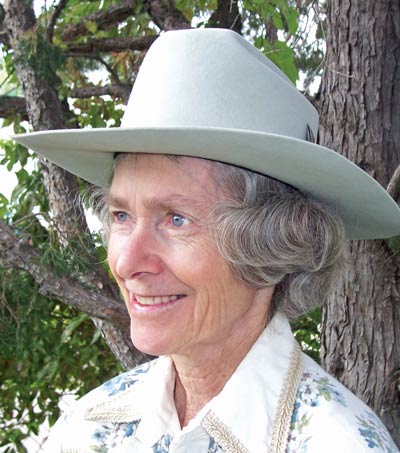A Humble, Open Attitude Benefits Young Farriers
Good farriers are always learning and always open to new ideas or better ways to do things.
Chuck Jones started shoeing horses in 1997 and has been striving ever since to learn as much as he can, in as many different ways as he can.
“This has enabled me to work on some of the best horses in the world,” says the Lexington, Ky., farrier. “If you want to improve your skills, you need to be actively involved and open to new knowledge. There is always more to learn, but sometimes farriers lose sight of this fact.”
Maybe the new farrier has good business skills and is successful in establishing a business in a small community. Suddenly, they are a big fish in a little pond.
“As soon as that happens, some of those farriers quit trying to get better,” Jones says. “They don’t take advice from other people and don’t feel like they need to go to clinics or to any more conventions or competitions or watch instructional videos because they think they have arrived.”
Jones chalks this up to human nature and suggests that sometimes we have to work at being humble and realize that we can still learn something from just about anyone.
“No matter how much you learn and how far you go,” he says, “there is still more to learn.”
Jones saw these qualities embodied in English farrier Steven Beane while participating in the American Farrier’s Association Cultural Exchange Program.
“Steven has won multiple World Championships at the Calgary Stampede, but as many achievements as he has made, and as great as he is, he is still a very humble guy who still wants to learn,” Jones says. “This attitude is what makes a great person. I think it’s better to be a little fish in a big pond, always striving to become a bigger fish but never losing your thirst for knowledge.”
Many of the farriers that Jones has worked with have said that farriery is not a career, it’s a lifestyle. It was a point that was lost on him at first, but with experience comes wisdom.
“I didn’t understand that, at first, but as I’ve gotten older and shod more horses, I realized it has more to do with never stopping, never losing a passion for learning,” he says. “Otherwise, you get left behind.”
Jones advises young farriers to set personal goals and try to be the best farriers they can be, but not try to be the best farriers in the world.
The apprentice needs to be listening to what I have to say and do the job …
“Growing in this industry is all about team effort,” he says. “If a person is trying to be the best farrier, they sometimes block other people in that effort to get ahead. They are still part of the industry but not a good team player. They’ve also closed themselves off to some important opportunities and start to miss some really good information just because they are not listening to other farriers who could help them out.”
A farrier — regardless of experience — needs to be able to listen. Jones already had been shoeing for 13 years — including separate 3-year stints at Rood & Riddle Equine Hospital and as an instructor at Kentucky Horseshoeing School — when he participated in the exchange program. Yet, he made a conscious decision to keep an open mind.
“I wanted to go over there with a mind-set to learn,” Jones says. “I wanted to put my head down and act like I didn’t know anything instead of saying I already know this or that. When someone asked me to do something, I would do it and they would either tell I knew what I was doing or I didn’t, and I would go on from there.”
The results were rewarding for Jones.
“The veteran farriers shared more with me because they realized I was open to their suggestions,” he says. “I didn’t try to push my knowledge and opinions unless they asked for my opinions. They shared some amazing stories and information with me that I don’t think they would have shared if I hadn’t just put my head down and worked hard.”
Jones finds that many recent graduates have an over-inflated sense of their abilities and knowledge, which can lead to problems.
“A lot of my colleagues feel that the schools are teaching students a lot, but are not making them aware that when they finish school, they are just starting,” he says. “Most apprentices talk a lot and push their own methods and opinions, maybe asking why their boss isn’t doing things the way they learned in school — even though their boss has been shoeing for 30 or 40 years.”
When an apprentice has this attitude, problems develop and the young farrier will find that he or she won’t last long in that apprenticeship.
“I’m turned off really fast when a new apprentice talks to my clients about things he knows nothing about or talks when he should be working,” Jones says. “The apprentice needs to be listening to what I have to say and do the job. When that job is mastered, I will give the apprentice another job.”
It’s important for farrier students to evaluate their work ethic, he says.
“Learning and work ethic go hand in hand,” Jones says. “You can go to lots of continuing education programs and events but if you don’t have a good work ethic, you won’t get as much out of them. Without the proper drive, you won’t be studying the books as much as you should or doing your forging exercises. You have to be able to take it seriously and work hard day-in and day-out.”

